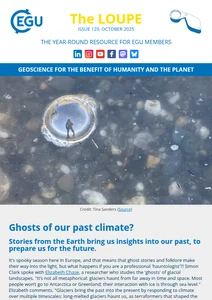President: Cinzia Bottini
(Emailssp@egu.eu)
Deputy President: Marc De Batist
(Email)
ECS Representative: Shradha Menon
(Emailecs-ssp@egu.eu)
The Stratigraphy, Sedimentology and Palaeontology Division (SSP) focuses its activities on all aspects of the sedimentary record. About 70% of the Earth surface is covered by sedimentary deposits, which are eroded and deposited right at the contact between the solid lithosphere and the atmosphere, biosphere and hydrosphere. Sedimentary rocks record the history of our planet since almost 4 billion of years and play a pivotal role for our understanding of the evolution of life. This deep-time archive of Earth history is studied with a wide range of analytical techniques providing ever stunning details on the evolution of our planet. Sedimentary basins host important natural resources like coal, gas, oil, ore deposits and groundwater and therefore a better understanding of the physical, chemical and biological processes controlling the formation and distribution of sediments and sedimentary rocks is of utmost importance for our society.
Latest posts from the SSP blog
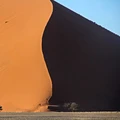
The Guinness Book of Sedimentology: your guide to the world’s largest EVER sedimentary landforms
There is something about really BIG things that always grabs people’s attention – look at dinosaurs for example. The geological record is littered with the extreme and today we will explore the biggest, the tallest, the deepest and steepest sedimentary structures and landforms ever to grace our planet. Depositional environments ranging from fluvio-lacustrine and aeolian, coastal environments and a range of marine settings have been studied to identify the record breaking dunes, bars, channels, deltas, sheet sands, canyons and more. …
Read more
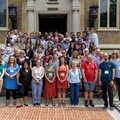
Introducing the TIMES initiative
TIMES is the acronym of a large-scale international science initiative “Time Integrated Matrix for Earth Sciences” (Link: https://www.codd-home.net/times/). The idea is to launch a global program with the aim of synchronizing age models for particularly important geological climate records from the past 100 million years. The motivation for this program is given in a white paper published in the journal Paleoceanography and Paleoclimatology of the American Geophysical Union (Link: https://agupubs.onlinelibrary.wiley.com/doi/10.1029/2024PA004932). Geological records of the past allow researchers to better understand …
Read more
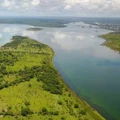
Tracing temperatures in tropical Lake Petén Itzá over the last 24,000 years
Past and present global warming: its effect on the tropics According to meteorological data and climate models, global temperatures have increased by up to 1.1 °C since 1960 because of rising atmospheric greenhouse gas concentrations, including an increase in CO₂ concentrations by up to 200 ppm. In some regions, such as the tropics, home to over 40% of the world’s population, warming has reached up to 2 °C compared to preindustrial values (INSIVUMEH, 2024; Fig. 1). This phenomenon can cause …
Read more
Recent awardees
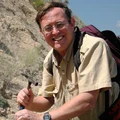
- 2025
- Jean Baptiste Lamarck Medal
The 2025 Jean Baptiste Lamarck Medal is awarded to
Donald Ross Prothero in recognition of a strong research profile in terrestrial stratigraphy, and unwavering support and education of the next generation.
Read more

- 2025
- Outstanding Student and PhD candidate Presentation (OSPP) Award
The 2025 Outstanding Student and PhD candidate Presentation (OSPP) Award is awarded to
Zsanett Szilagyi Subsurface dissection of Holocene inter-reef Halimeda bioherms: morphology, facies and latitudinal variations in the northern Great Barrier Reef
Read more
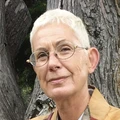
- 2024
- Jean Baptiste Lamarck Medal
The 2024 Jean Baptiste Lamarck Medal is awarded to
Silvia Frisia for her highly significant impact as a sedimentologist researching carbonate-based palaeoclimate science, in particular through her work on carbonate fabrics in cave deposits, or speleothems.
Read more

- 2024
- Division Outstanding Early Career Scientist Award
The 2024 Division Outstanding Early Career Scientist Award is awarded to
Miguel Ángel Maté González for his outstanding work in palaeontology and archaeology developing a new methodology for the analysis of 3D cut marks on bones.
Read more
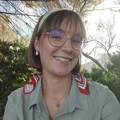
- 2024
- Outstanding Student and PhD candidate Presentation (OSPP) Award
The 2024 Outstanding Student and PhD candidate Presentation (OSPP) Award is awarded to
Mélinda Martins Deciphering local from global signals in Portimão Bank sedimentary dynamics
Read more
Current issue of the EGU newsletter
In our October Issue we are feeling the spooky season as we talk with Elizabeth Case, a 'hauntologist' who studies the ghosts of glaciers, Asmae Ourkiya investigates a recent study of the shadows left behind on the climate from a massive eruption in Indonesia, we hear from Peter Alexander, who shares his experience of doing research in an autocratic regime in the Global South, we share all the upcoming webinars planned for November (there are a lot!), and don't miss our announcement of a new Emergency Support policy, to help researchers in the Earth, planetary and space sciences who have been affected by disaster, crisis or conflict.
All this and much more, in this month's Loupe!
Read more









